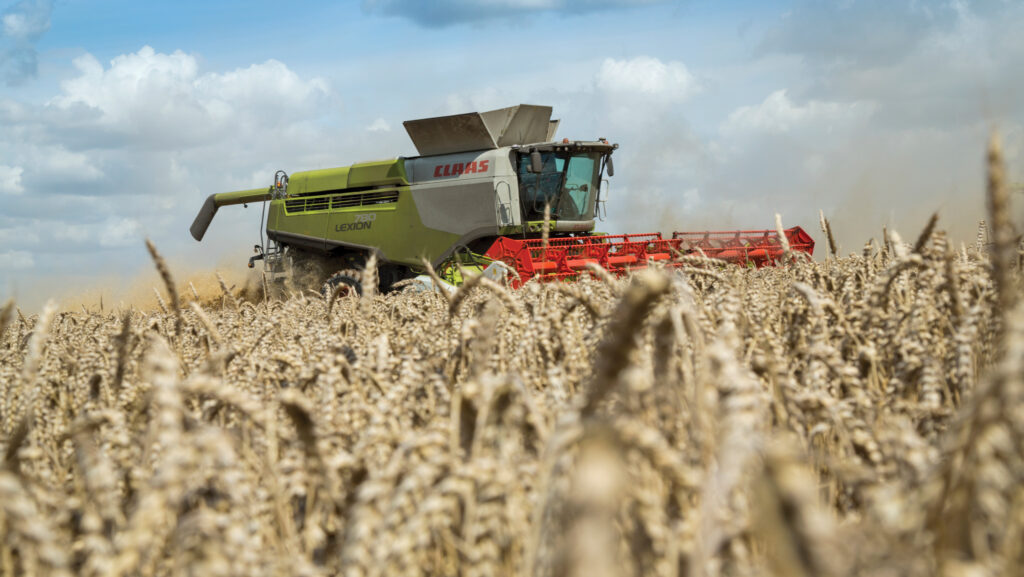UK wheat falls to £163/t pressured by large global supplies
 © GNP
© GNP Ample supplies of grain have been weighing heavily on global markets as harvest progresses across the northern hemisphere.
Limited export demand has also played a part in suppressing trade, with EU and Black Sea grain struggling to find a home.
EU exports have had a sluggish start to the season, with EU Commission data showing exports of soft wheat in the five weeks to 3 August totalled just 1.1m tonnes, less than half the volume for the same period last year.
See also: Straw and fodder shortages hit producers as prices climb
UK prices continue to track wider global markets in Chicago and Paris, with feed wheat futures for the November contract closing at £172.70/t on 5 August, down more than £20/t since the start of the year.
This marks the lowest level for the November contract at this time of year since 2019.
Typically, a lack of activity in the market can lead to prices softening during the summer months, with renewed interest often returning in September.
Yuriy Ruban, a cereals analyst at the AHDB, said: “Historical data from seasonal charts of UK feed wheat and Paris rapeseed futures indicate that prices typically fall in August.
“However, over the next month prices usually begin to stabilise as the market assesses supplies and demand potential over the season.”
Mr Ruban added that the current high levels of geopolitical and economic risk could potentially mean seasonal price movements differ more significantly this year from historical figures.
Spot prices collected by Farmers Weekly on 1 August put feed wheat at £162.8/t.
Meanwhile, milling wheat averaged £188.2/t, with the premium growing to more than £25/t in recent weeks.
Analysts at CRM said: “More recent harvest reports have noted lower quality, while rains have raised fears for the crop in Germany, a key source of UK bread wheat imports.
“With a dip in sterling cutting the appeal of imports, the UK milling premium should prove firmer in 2025-26 than last season.”
Harvest is progressing fast across the UK and remains ahead of last year. Winter barley was almost complete in late July, with yields roughly in line with historical averages.
Winter wheat harvest is also advancing earlier than normal, with early yields down on the year at 6.9t/ha.
